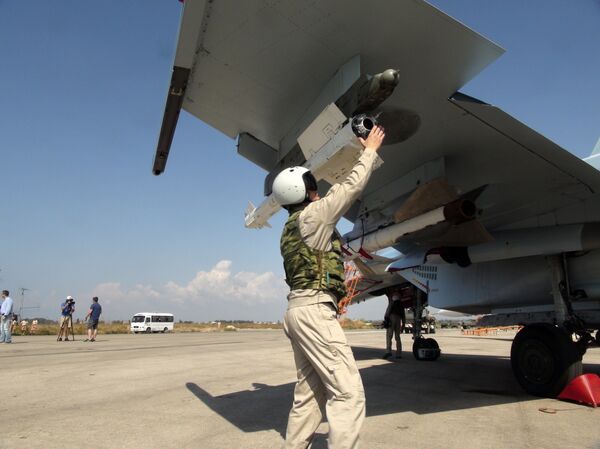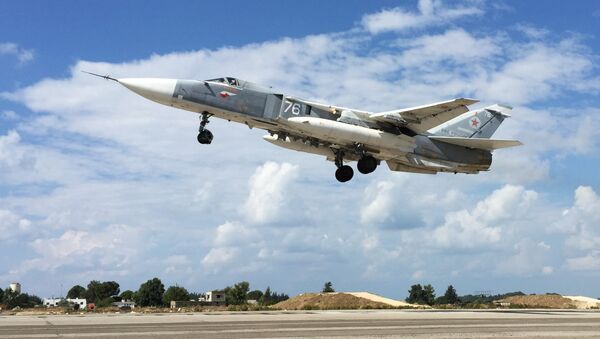"What probably irks the West most is that Russia has unfolded – and begun – a sophisticated military campaign in the flash of an eye. NATO bumbles along much more slowly with its complicated structures. Iraqis have long complained that in military terms, assistance promised by the NATO powers takes (literally) years to materialize, whereas requests to Russia and Iran are expeditiously met," he noted in an article titled "Russia's Aim in Syria Is to Strategically Defeat ISIS and Al Qaeda."
But speed is not the only thing bothering the North Atlantic Alliance.
For years NATO was the only organization effectively making decisions regarding war and peace within as well as beyond its own borders. Outside opinion was not taken into account. "Those on the receiving end simply had to endure it. But whilst its destructive powers were evident, its strategic benefits have been far from evident – especially across the Middle East," Crooke pointed out.

The Russian campaign aimed at assisting the Syrian forces in their fight against the Islamic State and other terrorist groups operating in the country has put an end to this state of affairs and offered a glimpse into what the future might look like.
True, the current coalition, comprising Russia, Iran, Syria, Iraq and Hezbollah, is not a SCO venture. But the group, sometimes branded as 4+1, could well become what Crooke referred to as "a 'pilot' in non-Western, successful coalition-operating."
The SCO and the coalition fighting ISIL in Syria have a lot in common. The latter aims at preempting "NATO-style regime change projects — a prime SCO concern," the expert explained.
Therefore, the West has unleashed a massive negative campaign to discredit the Russian airstrike campaign in Syria.
"It might be seen in some Western quarters as hugely important to set a narrative of failure for the 4+1 alliance, and to denigrate any sense that its military example might have strategic importance for the non-Western world," Crooke concluded.



